
News & Events
A Yearly Roundup with evolve
2019 has been an exciting year for evolve with its new branding and strategies. With our vision broadened from initiating multi-stakeholder dialogue and addressing public health challenges, we are now working towards building commitments to deliver meaningful behavioural change and empower healthy communities across Asia. Moving forward, evolve will explore a wider array of activities, dialogues and partnerships that will drive a greater impact within communities through continuous stakeholder engagement to co-create scalable and localised solutions.
Progress of Pilot Programmes in Indonesia and Thailand
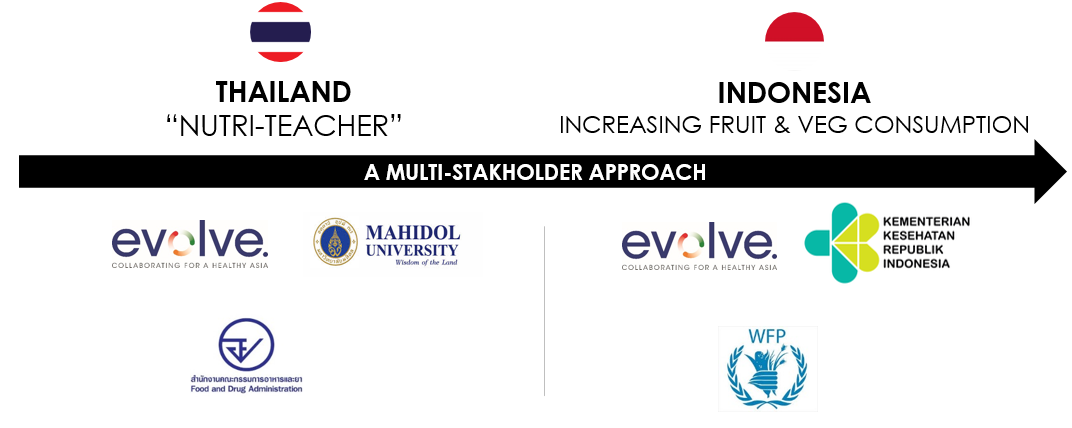
Where are we now?
Promoting Fruit and Vegetable Consumption in Schools in Indonesia – Working alongside the World Food Programme (WFP) and the Indonesian Ministry of Health, this initiative, as part of the national school meals programme (PROGAS), sought to increase the consumption of fruits and vegetables through the improvement of existing nutrition education resources. By offering more interactivity using games, social media and community gardening efforts, the initiative sought to draw the connections between agriculture and good nutrition which would enable them to make informed and healthy food choices.
A baseline study was carried out to assess knowledge, attitudes and practices of children and their caregivers towards the consumption of fruits and vegetable. Through this study, the appeal, comprehension and opinions on existing Behaviour change campaign (BCC) materials and the prototype of new materials were assessed.
The study found that there was a self-reported liking to fruits and vegetables among children. While 60 per cent of the children’s family grow fruit trees at home, consumption rate is low. Only about four per cent and 20 per cent of the children consume fruits and vegetables respectively, on a daily basis. Caregivers on the other hand, lack the understanding of the benefits of consuming fruits and vegetables. The survey also found that vegetable consumption at home was seen at least three times a day while fruit purchase and consumption was not a priority as a result of its high cost.
Based on the findings and the feedback WFP received from the target audience on the current campaign materials, the materials and tools were simplified and made to be interactive.
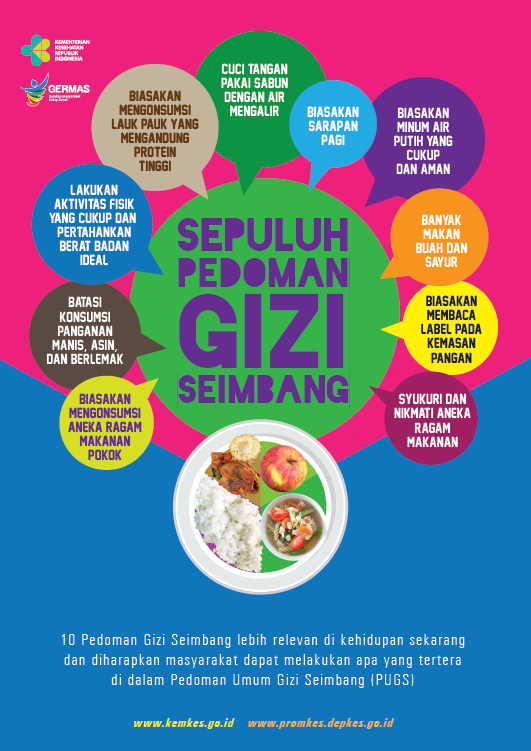
Revised Campaign Poster (below) detailing 10 tips on adopting a balanced diet
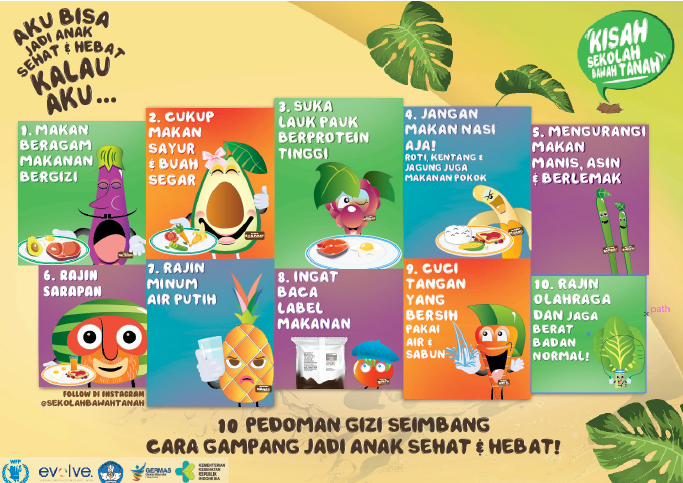
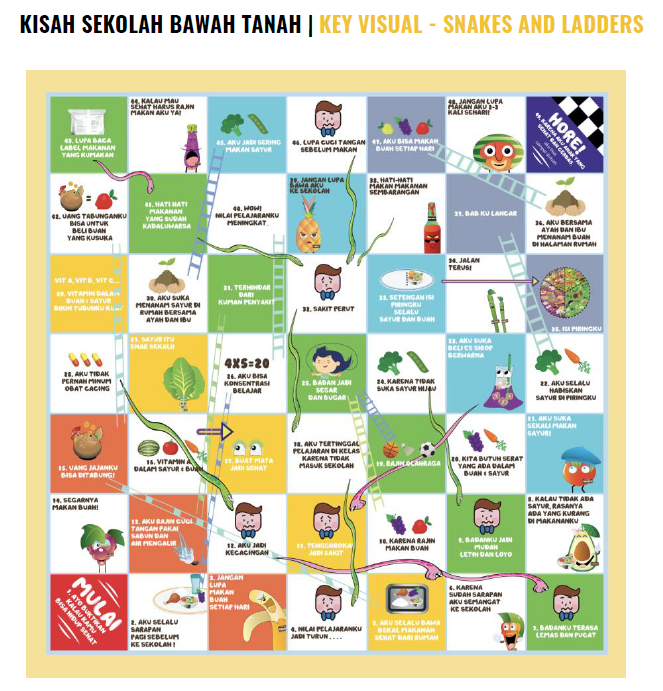
Sample of an interactive tool: Snakes and Ladders
The revised campaign materials have been introduced to the caregivers and children in the pilot school as part of a focus group discussion to evaluate if the new BCC resources are effective prior to implementation. As part of the two-year pilot programme, other activities that will be introduced include – a school garden establishment, a cooking competition utilising fruits and vegetables from the school garden and collaborating with the local Community Health Centre to monitor the quality of the breakfast meals provided by parents/caregivers. The impact of the programme will be compared against an end-line study which will be carried out between December 2019 and January 2020.
Nutri-Teacher Programme in Thailand – Partnering with Mahidol University and the Thai Food and Drug Administration, this initiative focuses on training school children to become health assessors for themselves and their families.
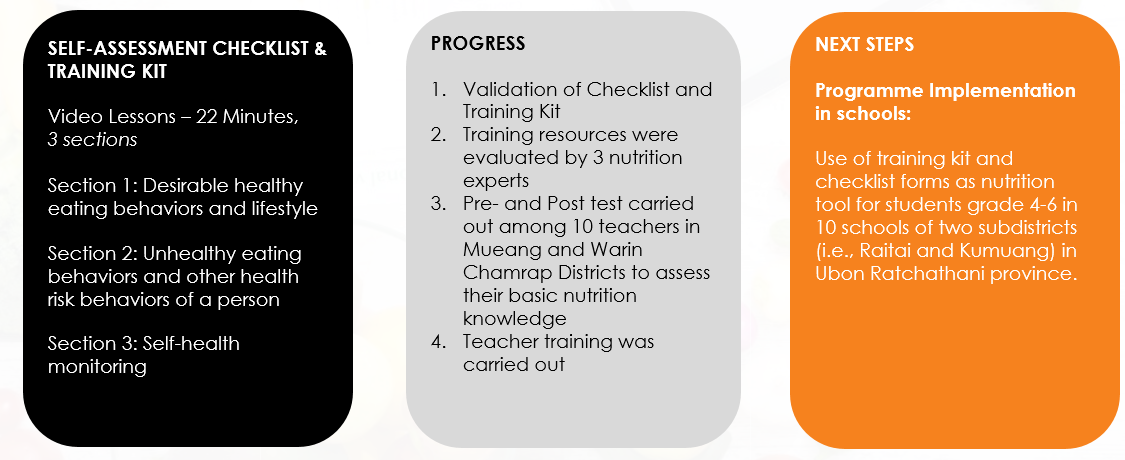
What’s next for evolve?
Looking forward to 2020, the pilot programmes in Indonesia and Thailand would have been fully rolled out with an evaluation study underway to assess the impact of nutrition education in schools and the eating behaviours among school children in these two markets. Drawing from the key learnings of the two programmes, evolve aims to enable social and behaviour change at a greater scale by working with local partners across sectors to deliver tailored solutions to the local community.

